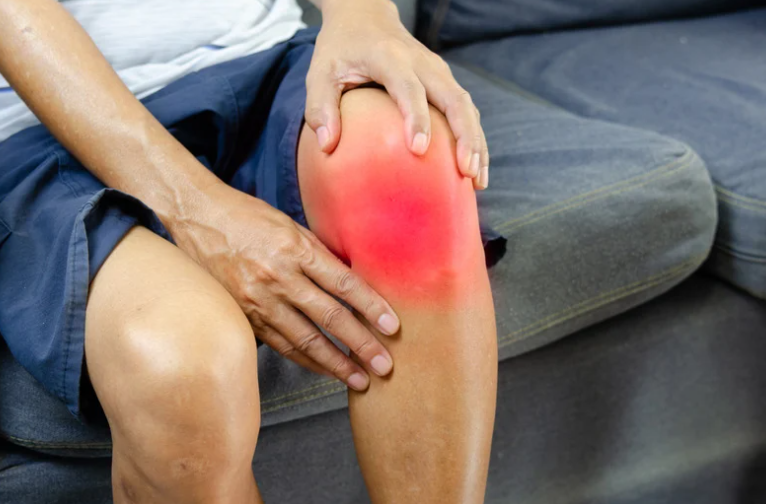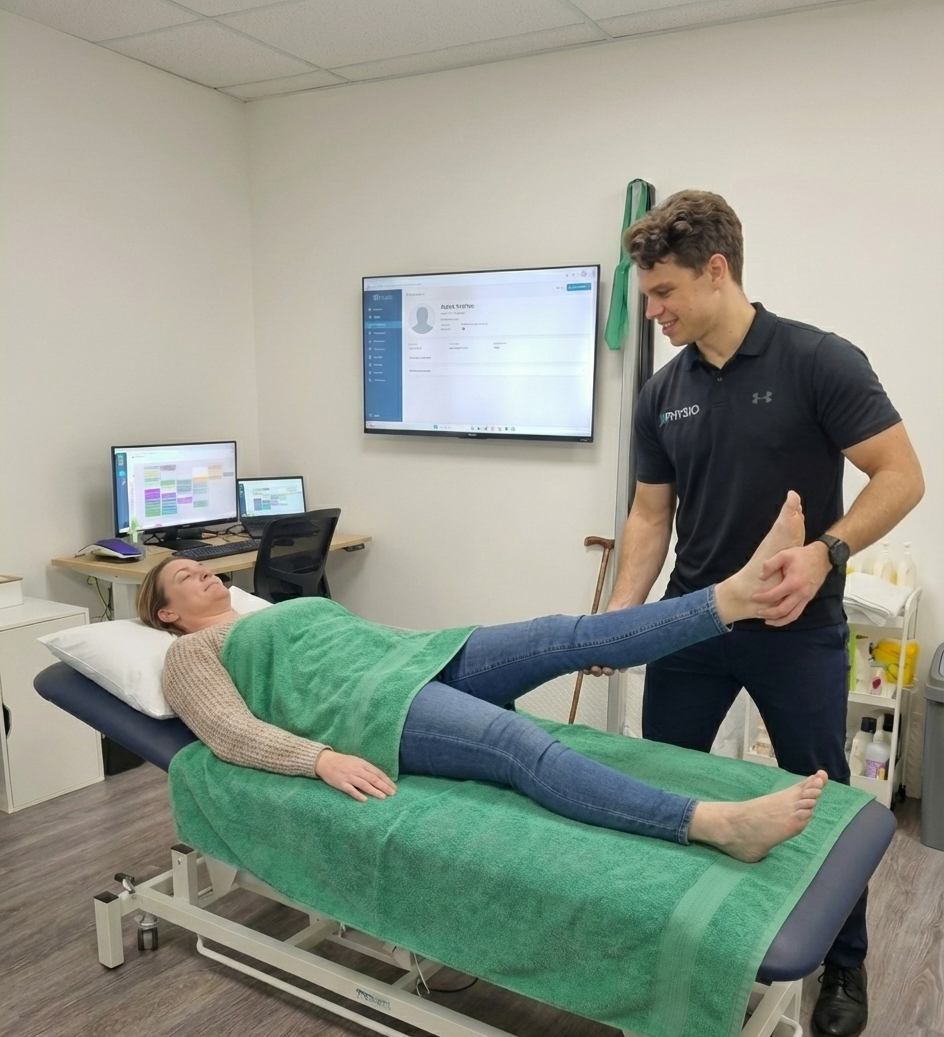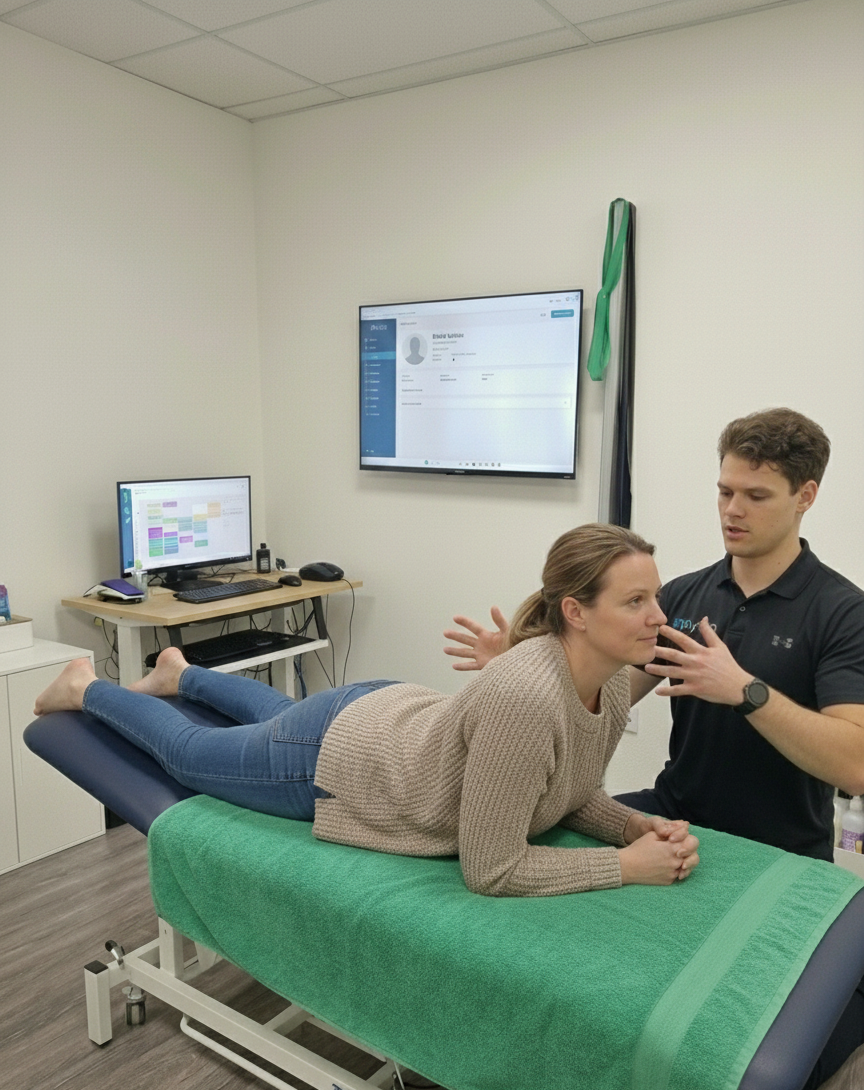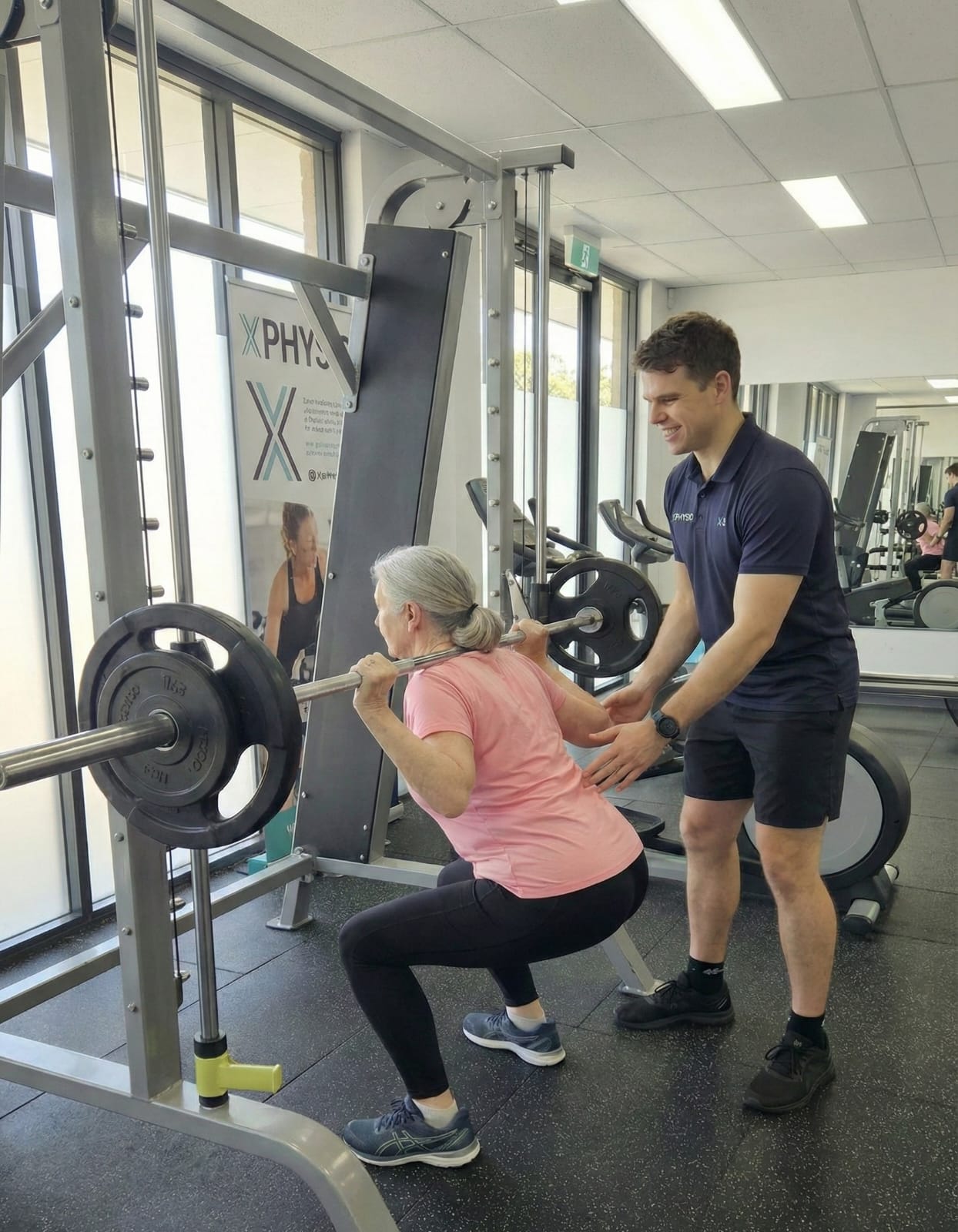
54) Fat Pad Impingement with Physiotherapy
Knee pain that lingers at the front—especially just below the kneecap—might not be what you think. Fat pad impingement is a sneaky cause of discomfort that often goes undiagnosed. Read on to learn how physiotherapy can help settle inflammation, restore strength, and keep you active without injections or surgery.
What is Fat Pad Impingement?
Fat pad impingement, also known as Hoffa’s Syndrome, is an often-overlooked source of anterior knee pain. The infrapatellar fat pad is a soft, cushioning structure located just beneath the kneecap (patella) and behind the patellar tendon. Its job is to reduce friction and act as a shock absorber in the knee joint. But when it becomes irritated or pinched—especially during knee extension—it can become painful and inflamed.
This condition can affect anyone but is particularly common in people who do a lot of kneeling, jumping, or running—activities that place repetitive stress on the front of the knee.

Why Does Fat Pad Impingement Happen?
There are several causes, and it’s not always due to a single traumatic event. Some common contributors include:
- Overuse injuries – Common in athletes, dancers, and gym-goers.
- Knee hyperextension – Either from natural joint hypermobility or poor movement patterns.
- Poor biomechanics – Weak glutes, poor core control, or foot/ankle instability can all overload the knee.
- Post-surgical changes – After ACL reconstructions or arthroscopies, the fat pad may become fibrotic or irritated.
- Direct trauma – A knock or fall to the front of the knee.

What Does It Feel Like?
Symptoms of fat pad impingement include:
- Sharp pain at the front of the knee, just below the kneecap.
- Pain worsened by kneeling, squatting, or fully straightening the knee.
- Swelling or puffiness around the patellar tendon.
- Feeling of “pinching” when the leg is fully extended.
- Sometimes, the pain is confused with patellar tendinopathy or bursitis—but the location and triggers are different.
- If you notice swelling around your knee, CLICK HERE to read another blog all about this.
How is Fat Pad Impingement Diagnosed?
At our physiotherapy clinic, diagnosis is made through a combination of:
- Clinical assessment – Including palpation, movement analysis, and testing provocative positions like knee extension or compression of the fat pad area.
- Functional movement screening – To assess whether poor control of the hip, foot, or trunk is contributing.
- Exclusion of other conditions – Like patellar tendinopathy, bursitis, or meniscal issues.
- Imaging – In some cases, an MRI may be needed to confirm inflammation or impingement of the fat pad.

Physiotherapy Treatment for Fat Pad Impingement
Physiotherapy is the first line of treatment for fat pad impingement, and for good reason. Conservative management is highly effective and helps avoid the need for cortisone injections or surgical intervention.
Here’s how we approach it:
1. Settle the Inflammation
- Activity modification – Reduce kneeling, jumping, or deep squatting temporarily.
- Offloading techniques – Taping (like McConnell or Kinesio taping) to pull the patella slightly and relieve pressure.
- Ice therapy – Regular icing post-activity helps reduce local swelling.
- Education – Knowing what aggravates it is half the battle!
2. Address Contributing Factors
- Hip and glute strengthening – Poor control here leads to poor knee mechanics.
- Foot and ankle stability – Flat feet or unstable ankles can cause increased valgus collapse at the knee.
- Core control – To support better whole-body biomechanics when walking, running, or lifting.
3. Manual Therapy
- Soft tissue release – To reduce tension in the quads or ITB that might be increasing patellar pressure.
- Mobilisation – Gentle joint mobilisations can help restore normal knee glide, especially if there’s post-surgical stiffness.
4. Restore Range and Strength
- Gradual strengthening of the quadriceps (especially VMO) in safe positions that don’t irritate the fat pad.
- Hamstring and calf stretching to ensure balanced forces around the knee.
- Progression to functional and sport-specific movements as symptoms improve.
5. Return to Activity and Prevention
- Rebuild capacity in a graded and controlled manner.
- Teach optimal movement patterns for gym training, running, or sport.
- Monitor for recurrence and adjust training loads accordingly.
How Long Does Recovery Take?
Recovery depends on the severity and how long the condition has been brewing. Mild cases can resolve within 2–4 weeks with appropriate offloading and early physio. Moderate or chronic cases may take 6–10 weeks or longer if biomechanics need more correction.
The key is consistency and avoiding aggravating activities too early.

A Real-Life Case Study from the Clinic
Meet Rachel, a 32-year-old yoga instructor from Frenchs Forest.
Rachel came in complaining of sharp pain below her kneecap, especially when transitioning from kneeling into standing during yoga classes. She had no major injury history but had been increasing her yoga load to prepare for an advanced teaching module. She also reported mild hypermobility in her knees and ankles.
Assessment revealed:
- Local tenderness around the infrapatellar fat pad
- Painful end-range knee extension
- Mild medial collapse when stepping up
- Poor glute activation in single-leg tasks
We started by offloading the knee using tape and modified her yoga practice to avoid kneeling and deep hyperextension. She also began a hip and glute strength program and worked on improving her core control with guided exercises.
Over the next 6 weeks, Rachel’s pain reduced dramatically. She was able to return to teaching full classes, and by week 8, she was back doing advanced kneeling poses with confidence and zero pain. We also helped her build a maintenance strength program to prevent flare-ups and support her growing yoga workload.
Rachel’s story is a great reminder that fat pad impingement doesn’t need injections or surgery—it just needs the right eyes, the right rehab, and a structured return to load.
Can It Come Back?
Yes, if the underlying causes aren’t addressed.
That’s why it’s crucial to stick with your rehab and not rush back to kneeling, running, or jumping too soon. Preventive strategies like regular strength work, movement quality checks, and proper warm-ups go a long way.
When to Consider Imaging or Other Interventions
In rare cases, if symptoms don’t settle after 8–10 weeks of consistent physiotherapy, your physio may refer you to a sports physician. They might explore:
- Cortisone injection – To calm stubborn inflammation (but should be a last resort).
- MRI scan – To confirm fat pad changes or rule out other pathology.
- Surgical trimming – Very rarely required, and usually only for persistent impingement unresponsive to all other treatments.
Prevention Tips from Our Team
- Don’t ignore knee pain that lingers more than a week.
- Warm up well before squatting, running, or jumping.
- Avoid excessive hyperextension of the knee—especially in yoga or Pilates.
- Prioritise glute and hip strength in your workouts.
- Use proper technique when kneeling or landing from jumps.
The Takeaway
Fat pad impingement is a treatable and reversible source of knee pain. It’s often misdiagnosed or overlooked, but with the right physio approach, you can avoid injections, avoid surgery, and get back to full function—pain-free.
We see this all the time in the clinic. You don’t need to put up with that annoying front-of-knee pinch or avoid activities you love.
Give us a call today on 9806 3077, or book online, just CLICK HERE.
References and Further Reading
- Brukner, P., & Khan, K. (2017). Brukner & Khan’s Clinical Sports Medicine. McGraw-Hill.
- https://www.physio-pedia.com/Infrapatellar_Fat_Pad_Syndrome
- https://www.ncbi.nlm.nih.gov/pmc/articles/PMC6137681/
- https://www.knee-pain-explained.com/infrapatellar-fat-pad.html
- https://x-physio.au4.cliniko.com/bookings#service (Our online booking page)
Let us help you move better, feel stronger, and get back to doing what you love.



